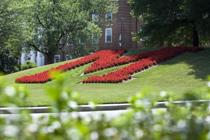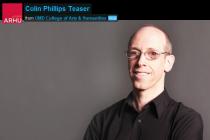LLRC Meeting: Susan De La Paz & Kelli Cummings (CHSE)
10:30-11:15: Susan De La Paz
Writing as a means to promote learning in history and science
Abstract: Writing is crucial to success in high school, college, the workplace, and civic life. Although some debate the most appropriate aim for content-area literacy instruction, with calls for writing to support knowledge acquisition, there appears to be growing consensus that adolescents should write not only to demonstrate content-area learning, but also to grapple with domain dependent and intellectually challenging issues. Secondary literacy and content area learning become inextricably interlinked, with academic progress increasingly dependent upon the acquisition of specialized knowledge and skills and distinct purposes in literate, scientific, and historical communities. Thus, by adolescence, literacy development is no longer the official purview of English teachers only. Nor is literacy simply a matter of developing facility with general reading and writing practices regardless of content. Instead, recent standards initiatives (e.g., CCSS, C3 and NGSS) now frame literacy as a crucial feature in any effort to help students understand and develop knowledge in the disciplines. Because disciplinary literacy includes reading and writing as well as conceptual understanding and procedural knowledge of a discipline, the literacies demanded are not generalizable; they vary by discipline.
In this presentation, I will briefly differentiate content area literacy from disciplinary literacy, and then highlight domain general and domain specific aspects of argumentation, which is the central genre for academic learning. I will end with a focus on discipline specific ideas about the interpretation of evidence, drawing on examples from prior and current research involving middle school students.
11:15-12:00: Kelli Cummings
AACPS-UMD Researcher-Practitioner Partnership: Updates from year 2
Abstract: Since the spring of 2015, researchers from the LLRC and district staff from Anne Arundel County have been working together to forge a researcher-practitioner partnership (AACPS-UMD RPP). We have used the Institute of Education Sciences model to guide our work together, meaning that the purpose of these types of partnerships should be to solve district- or school-level problems of practice and to support the school's research expertise to promote sustainability. The purpose of the AACPS-UMD RPP is to evaluate the district-developed first-grade curriculum in terms of its content validity, impact on student achievement, and implementation. In this session we will describe an update of where the project stands to date, including what we have learned about the curriculum. In addition, we will describe the process of engaging in research through the partnerships like these.










